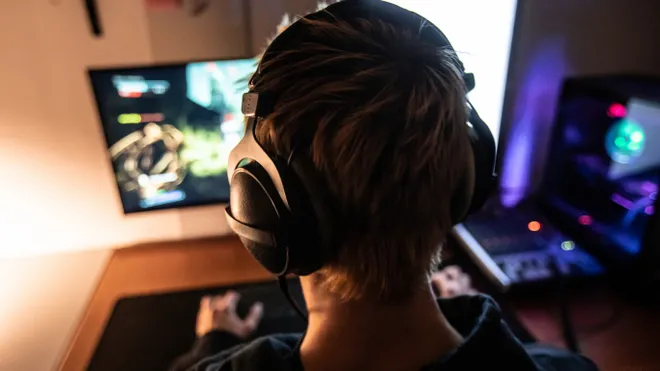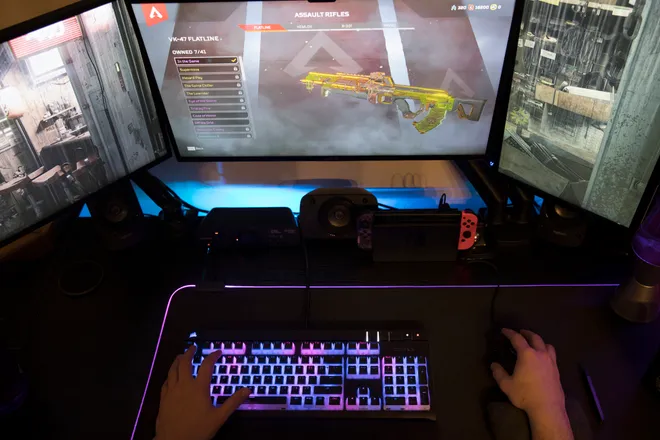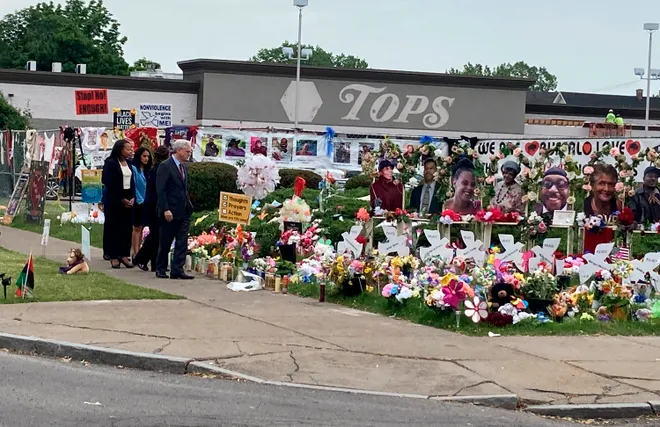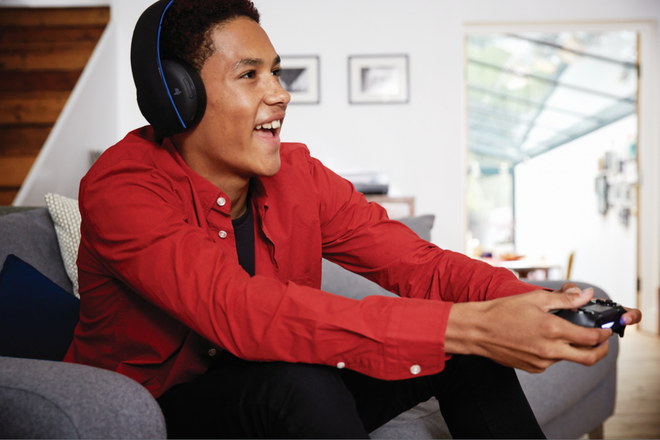Racism in online gaming is rampant. The toll on youth mental health is adding up
Not long ago, Amanda Calhoun, a periodic gamer, considered buying a video game with online multiplayer capability to play with other gamers online. But as she scrolled through the game’s reviews, she found complaints over the frequency with which the N-word was used by some on the platform. She decided not to buy it.
For Calhoun, who is Black, the discovery was distressing, not just personally but professionally given her work in child and adolescent psychiatry. With so many kids playing video games, how was such language affecting their self-identity and mental health?
“While these games are fun and entertaining, there’s a whole interactive world that kids are in,” said Calhoun, a fellow in child psychiatry at Yale University’s Child Study Center in New Haven, Connecticut. “You’re playing the game to have fun, not to see racist slurs.”
A growing field of research on online racism and its effects on young people shows racism and extremism in online gaming platforms are having detrimental mental and emotional health effects on those targeted directly, or even indirectly, by such vitriol. More than 212 million Americans play video games, according to the Entertainment Software Association’s 2023 industry report, fueling a $56.6 billion market.

About two-thirds of the estimated 25 million U.S. gamers aged 10 to 17 experience harassment on multiplayer platforms, the Anti-Defamation League estimated in a December report. “The spread of hate, harassment and extremism in these digital spaces continues to grow unchecked,” its authors wrote.
That can have harmful repercussions, Calhoun said, pointing to a 2019 policy statement issued by the American Academy of Pediatrics that addressed racism’s mental health impacts on children, describing it as a social determinant with profound health effects.
'There's a lot of shame involved'
Some worry that being subjected to racism in a space that many turn to for leisure could play a role in a troubling rise in suicidality rates among young Black people. According to the Centers for Disease Control and Prevention, suicide rates among young Black people ages 10 to 24 rose 36.6% from 2018 to 2021, the largest percentage jump among any demographic.
“There’s a lot of shame involved from seeing all this racist interaction,” said Brian TaeHyuk Keum, an assistant professor of counseling psychology at Boston College in Newton, Massachusetts, who has studied racism’s psychological effects on Black, Asian American and Latino youth. “When you’re seeing content that consistently marginalizes or denigrates your identity, you feel left out of society, and that trickles into ‘Do I deserve to be in this society?’ And you can see where that goes.”
A YouTube video posted last year by Melanin Gamers, a gamers community promoting diversity and inclusivity, featured a montage of audio clips illustrating racial, ethnic and antisemitic epithets directed at players in popular games such as "Call of Duty."
“This frequency of overt racism is unseen since Jim Crow,” said Stephanie Ortiz, an associate professor of sociology at the University of Massachusetts Lowell, north of Boston. “When you compound that with microaggressions, we shouldn’t be surprised that Black children are reporting suicidal ideation. And there’s no reprieve. It’s the price of admission, something you have to put up with if you want to play the game.”

The ADL last year surveyed more than 2,100 U.S. gamers across PC, console, and mobile platforms, including 1,931 people who play online multiplayer games.
Among all respondents, the group found racial and ethnic identity-based harassment highest among Blacks (44%) and Asian Americans (40%). Meanwhile, Latinos posted one of the largest increases over 2021, with 31% of Latinos reporting identity-based harassment compared to 25% the previous year.
Of those aged 10 to 17 surveyed by the ADL, 15% said they had been exposed to white supremacist ideologies, up from 10% in 2021.
While racism has always plagued the internet, Ortiz said the problem is worsening as the number of online platforms grows, offering more spaces for people to connect.
That can be a good thing: Players largely describe gaming as a source of positivity in their life, the Entertainment Software Association reported, relieving stress and creating community.
However, the anonymity allowed in online spaces can prompt cyber-aggressions and “a lot of virtual courage, where people feel they can say things they wouldn’t say in their offline world,” Keum said. “Online games provide a platform where they can express racist ideology.”
A problem with real-world consequences
Unchecked behavior in such platforms can have real-world consequences: The gunman who killed 10 Black people at a Buffalo, New York, supermarket in May 2022 had posted on Discord that a game on the Roblox gaming platform had influenced his radicalization.
A government report on the March 2019 attack in which 51 people were fatally shot at two mosques in Christchurch, New Zealand, showed that gunman’s similar path through online multiplayer games that allowed him to “openly express racist and far-right views” without pushback.

Efforts to curb such behavior is slow in the gaming industry even when compared to social media companies, the ADL said in its report, citing Roblox as the only company with an explicit, public anti-extremism policy.
“The inability of the games industry to build safe, respectful spaces for their users has made communities within online game platforms so rife with hate that they rival the worst places on the internet,” the authors said.
Nearly two-thirds (65%) of respondents to the ADL survey said game companies should be doing more to support those targeted by hate and extremism. Nearly 6 in 10 (59%) said companies should be held accountable for such behavior.
For some, harassment can lead to isolation
Much of the onus, Ortiz said, is put on the victims of or witnesses to online racism to either block offenders, avoid playing with strangers or conceal their own identities. Such experiences spurred 30% of young gamers to mask their identity in online games in 2022, the ADL found, compared to 25% in 2021.
“With young children, there can be a lot of shock,” Ortiz said. “This is one of the first times youths are hearing these slurs firsthand…. The problem with the online gaming space is that people go there for leisure, so it’s particularly frustrating. It can lead to isolation. Kids will play by themselves to avoid harassment.”
Some players try to avoid becoming targets by modulating their voice on platforms that offer such technology, while others just decide not to talk at all.
“Some folks have isolated themselves,” said Kishonna Gray-Denson, an associate professor of writing, rhetoric and digital studies at the University of Kentucky in Lexington who has written about the experiences of Black gamers. “They’re playing with their friends, but they don’t game in public spaces anymore. And if you don’t have a group of people, you just mute yourself.”

A July report issued by The JED Foundation, a New York-based nonprofit promoting mental health and suicide prevention for young adults, along with Raising Good Gamers, an agency advocating for healthy online gaming environments, called on a range of community players to address the issue. With rates of mental health issues rising among youth, the authors said an examination of the impact of online spaces on a developmentally susceptible population is crucial.
“We see a pressing need to prioritize and support mental health in the design, build, function, regulation and oversight of these spaces,” they wrote.
Keum, of Boston College, said there needs to be a shift in online culture overall.
“It’s about how we socialize our youth today,” he said. “We should make sure there’s critical education behind it. It’s going to take a long time.”
Disclaimer: The copyright of this article belongs to the original author. Reposting this article is solely for the purpose of information dissemination and does not constitute any investment advice. If there is any infringement, please contact us immediately. We will make corrections or deletions as necessary. Thank you.




